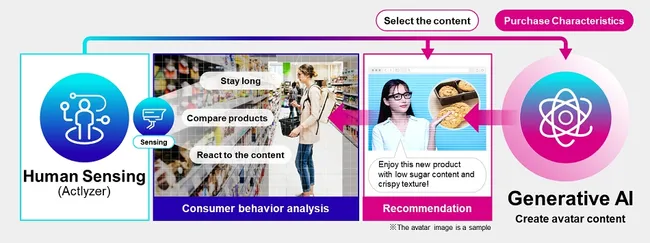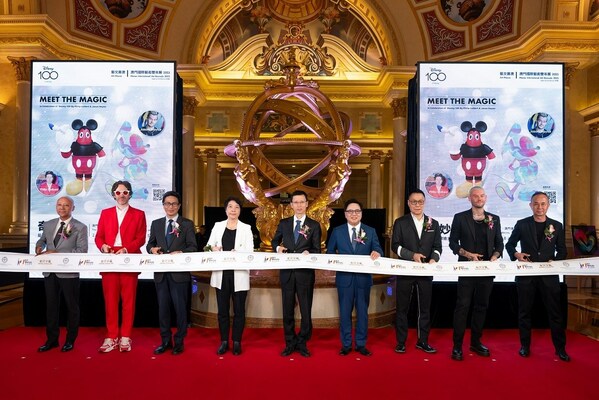Fujitsu revealed a new AI module for retailers that generates AI avatars and customised promotional content on digital signage based on in-store behaviour data of consumers.
With the support of the Retail AI Institute, Fujitsu will begin verifying the technology in actual stores at the Aruk Mitajiri Store, a supermarket run by Marukyu Co., Ltd. in Hofu City, Yamaguchi Prefecture, Japan from August 3, with the aim of addressing issues like labour shortages through automation and tailoring service to different customers’ unique needs with innovative, yet practical AI solutions.
The solution leverages both generative AI and Fujitsu’s unique human sensing technology to realise a more customer-centric shopping experience and help retailers improve sales targeting with engaging and dynamic promotions that react to customer gestures that indicate interest, and generating customised avatars and product information while processing the data in a format that preserves customer privacy.
Following field trials with customers, Fujitsu plans to launch the new solution during fiscal 2023 as a module for its AI platform Fujitsu Kozuchi, which allows users to rapidly test and deploy advanced AI technologies for business.
It also enables AI to achieve goals such as the selection of multiple promotional measures, automation of effect measurement, and sales improvement.
In recent years, with customers growing increasingly sophisticated and selective, retailers face a need to shift away from conventional, one-size-fits-all marketing, and embrace innovative approaches that provide shoppers with engaging, consumer-friendly experiences.
Technological progress in recent years has made it possible to analyse the in-store body language and shopping habits of customers using camera-based analysis technology. At the same time, the cost and labour required to quickly create customer service and promotional content remain a persistent issue in the introduction and improvement of marketing measures.
AI to transform the shopping experience
To address these challenges, Fujitsu has developed a new AI module that enhances the consumer experience by combining generative AI for content creation capabilities and its Actlyzer technology, which can analyse the gestures and movements of people based on camera data.
During the development of this module, Fujitsu relied on the marketing expertise of a research group led by Naoto Onzo, Director of the Institute of Marketing and Communication at Waseda University in Japan.
This input included an emphasis on principles in marketing theory that suggest that both warmth and competence, indicators of a customer service provider’s personality and knowledge, as well as the design and functionality of the product, influence consumer buying decisions.
Drawing on these trends in consumer behaviour, the developers of the AI module trained a model to estimate the behaviour transition probability of presenting customer service and promotional content based on the behaviour and attribute data of individual customers analysed by human sensing technology.
The model then optimises the prompt information required for generative AI and automatically determines content suitable for each individual. This allows the AI module to deliver engaging information tailored to the interests of customers by observing behaviours, like bending down toward a shop display or picking up a product, and providing content that includes the best customer service and product appeal for that individual.












